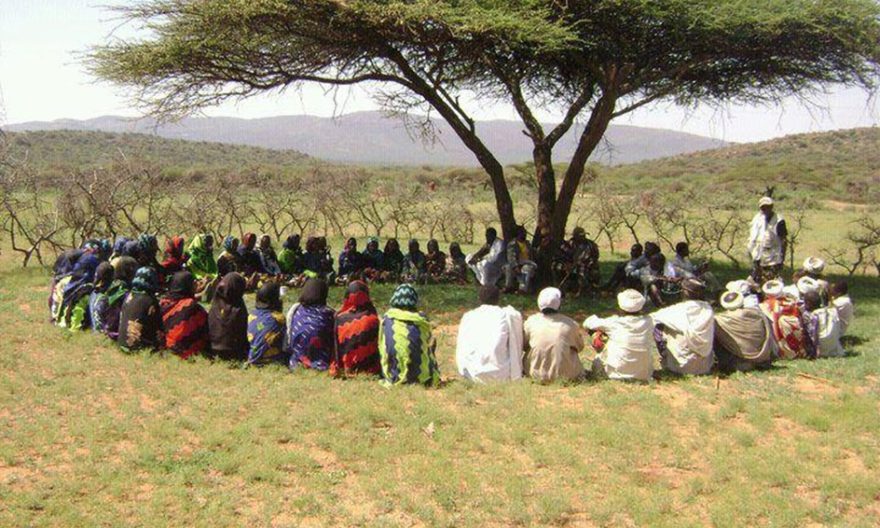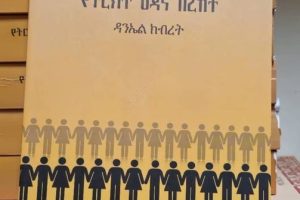
Ethiopia, with its unique new year, is celebrating several holydays and cultural festivals colorfully. The New Year itself, with the Enqutatash magnificence, the Demera and Meskel (the finding of the true cross) were celebrated in the past few weeks. Now is the Irreechaa, next …..and ….of September 2024 to be celebrated in Horra Finfine, Addis Ababa and Horra Arsedi, Bishoftu town of Oromia State.
The Irreechaa is one of the institutional values of the Gada system celebrated by the Oromo people since time immemorial. The Ethiopian Herald has been publishing several pieces of information about Irreechaa this week, and the Art and Culture column would like to hint at the Oromo people’s very deep-rooted Gada system in this piece.
The Gada system is a traditional democratic constitutional system practiced by the Oromo people for thousands of years. From the beginning, the Oromo people have been guided by divine principles, says Dr. Fre Jaleta from the Addis Ababa University.
Due to population growth and strange violent behaviors in societies, the rule of nature began to be violated. According to Fre, it was mandatory to create a constitution and establish the Gada system.
The basic standards on which the Gada system was rooted are universalism, eternity, and inclusiveness. “Some say the Gada system, like the other draconian laws, gives no place for women. Meanwhile, it is the most exemplary constitutional system that gives women the strongest power. In the parliament, women have 22 seats while men take 23. In modern constitutions, the numbers that matter are the seats that the party representatives or the parties gain in the parliament regardless of gender. But in the Gada system, women are equally represented.”
In order to further elaborate that the Gada system gives women priority Fre says that during war, if the women go with Sinke and say “No more,” it will stop automatically. If a man tries to abuse a pregnant woman or a female with a baby, he will be punished in front of women. If a husband and wife set out for a long journey, there is no way that he would let her walk on foot. She will ride a horse or mule. There were women Aba Gadas in the history of the Oromo traditional political system.
The Gada system has a lot to contribute for modern world democracy and researchers like Dr. Fre are still digging into what were hidden between societies for centuries. It is one of the oldest democratic systems, which is considered as an evolved democratic constitutional system, he says. Even though some outsider scholars say it is an unwritten system, it was and is written in essence. Children were raised learning and practicing it. “Some say Africans never had philosophies. But when you study the Gada system deeply, the reality is quite different. Children grow up learning it. It is written in their essence. And most of all, it is a partisan system bound with traditional but universal laws and orders”, says Fre.
According to him the system has its distinctions and similarities with modern democracy. What makes it different is its traditional approaches. For instance, if a man abuses women in any circumstances, he will get forty lashes.
Meanwhile, most of its values would go with what is called modern democracy. The Gada system gives priority to women and nature. Why do women and nature take the most crucial place in the system? They are the very makers of mankind and they both are everything, according to Fre. There was a recent experience that Fre remembers. The Korke is one of the most precious and indigenous wild animals in Ethiopia. However, in western Arisi the existence of this animal was under threat, or it was facing extinction due to illegal hunting. Thus, the society with the Gada parliament set meetings and decided that if someone killed one Korki, he would be fined with forty heifers as punishment.
He also notes that the first thing that links the Gada with the modern democratic system is its similarity and versatility with the American constitution, Adds fre. It gives four years of preparatory time for its Aba Gadas and four years of active power. It depends on the free will of the mass public and gives priority to the handicap, impoverished and others in need.
“It only grows up because it is established by the freewill of the people. If the Aba Gada has to leave the office after serving his time, it won’t take seconds. There is no such thing of changing the constitution. Military Coup-deta or extending a period of power with force is unthinkable. It is inclusive. It is not arbitrary”, says Fre.
To practice the Gada system, there are five stages that the children have to go through. Children between the ages of 8-16, for they are not matured for heavy responsibilities, they will learn how to swim, ride horses, throw spears and they go hearding goats. From ages 16-24 are called the Folle. Folle is a social army. Their dress and hair style is different. This member of the society goes straight to military training. The third stage of the Gada practical training is public speech and learning the ways of transferring power. They will also learn how to resolve crises.
After eight years they will be party candidates. They will practically learn the ways of a partisan system.
In order to come to power in the Gada system there are several criteria one must qualify. It starts with his personal behaviors. His decency and modesty take a significant place in the evaluations. His capability of managing his family is also one of the major criteria. It will be checked that if that candidate has enough wealth or whatever it takes to manage his family for eight years. His house is expected to be open for gusts twenty four hours with abundant food and drink to host the guests.
Does he have universal view? Or is he versatile? These are crucial requirements in the criteria. They are necessary because a person who is coming to leadership is expected to have universal views and has to be flexible. Fre says “A leader, who has narrow mind, has no place by the people of the Oromo. If he only favours his own people or the Oromo, he is not a leader. The people of Oromo through their Gada system have lived embracing brotherhood and sharing its positions or wealth with other ethnicities, according to Fre.
BY NAOL GIRMA
The Ethiopian Herald October 6/2024




